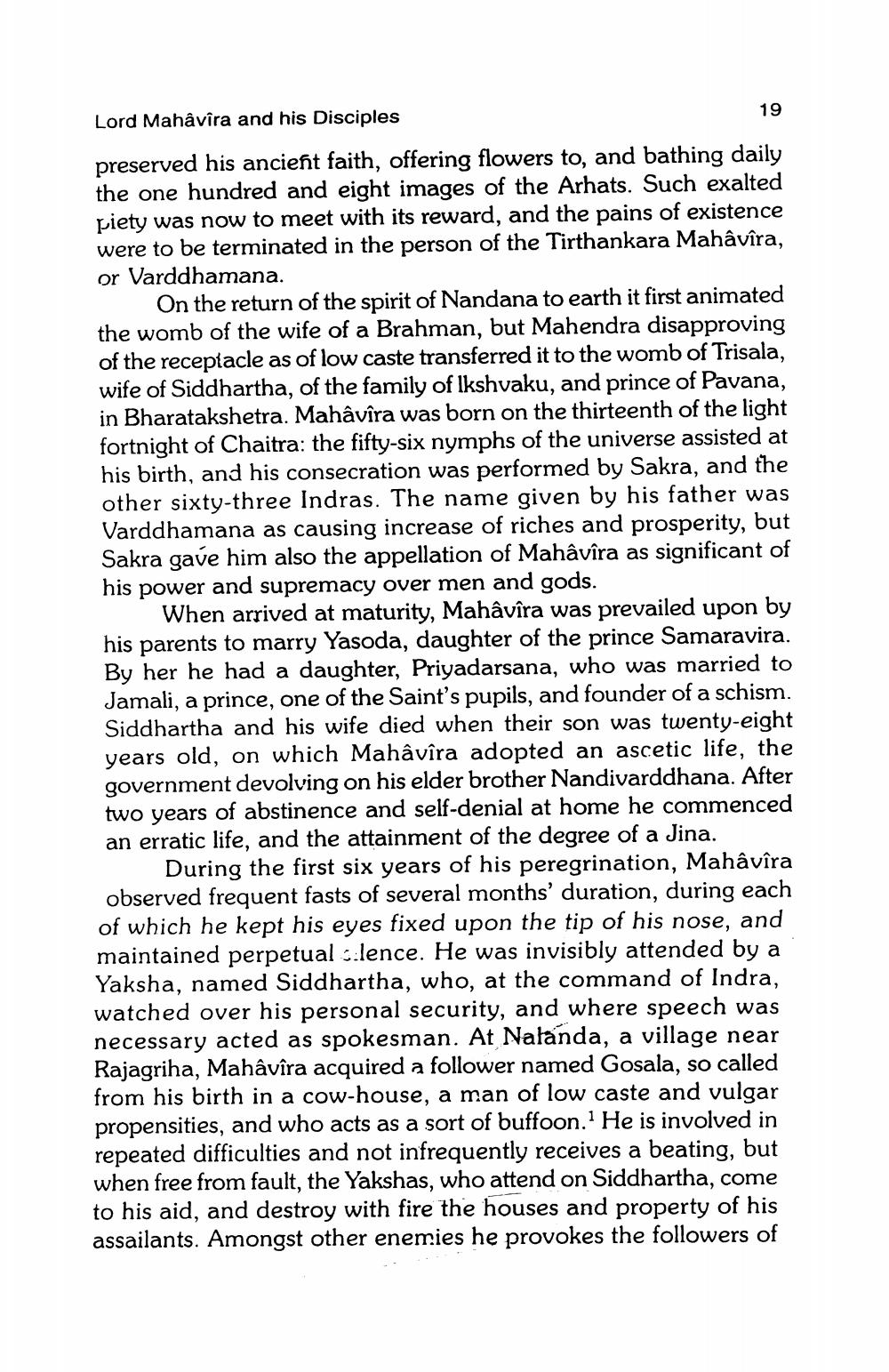________________
Lord Mahâvîra and his Disciples
19
preserved his ancient faith, offering flowers to, and bathing daily the one hundred and eight images of the Arhats. Such exalted Liety was now to meet with its reward, and the pains of existence were to be terminated in the person of the Tirthankara Mahâvîra, or Varddhamana.
On the return of the spirit of Nandana to earth it first animated the womb of the wife of a Brahman, but Mahendra disapproving of the receptacle as of low caste transferred it to the womb of Trisala, wife of Siddhartha, of the family of Ikshvaku, and prince of Pavana, in Bharatakshetra. Mahâvîra was born on the thirteenth of the light fortnight of Chaitra: the fifty-six nymphs of the universe assisted at his birth, and his consecration was performed by Sakra, and the other sixty-three Indras. The name given by his father was Varddhamana as causing increase of riches and prosperity, but Sakra gave him also the appellation of Mahâvîra as significant of his power and supremacy over men and gods.
When arrived at maturity, Mahâvîra was prevailed upon by his parents to marry Yasoda, daughter of the prince Samaravira. By her he had a daughter, Priyadarsana, who was married to Jamali, a prince, one of the Saint's pupils, and founder of a schism. Siddhartha and his wife died when their son was twenty-eight years old, on which Mahâvîra adopted an ascetic life, the government devolving on his elder brother Nandivarddhana. After two years of abstinence and self-denial at home he commenced an erratic life, and the attainment of the degree of a Jina.
During the first six years of his peregrination, Mahâvîra observed frequent fasts of several months' duration, during each of which he kept his eyes fixed upon the tip of his nose, and maintained perpetual clence. He was invisibly attended by a Yaksha, named Siddhartha, who, at the command of Indra, watched over his personal security, and where speech was necessary acted as spokesman. At Nalanda, a village near Rajagriha, Mahâvîra acquired a follower named Gosala, so called from his birth in a cow-house, a man of low caste and vulgar propensities, and who acts as a sort of buffoon.' He is involved in repeated difficulties and not infrequently receives a beating, but when free from fault, the Yakshas, who attend on Siddhartha, come to his aid, and destroy with fire the houses and property of his assailants. Amongst other enemies he provokes the followers of




